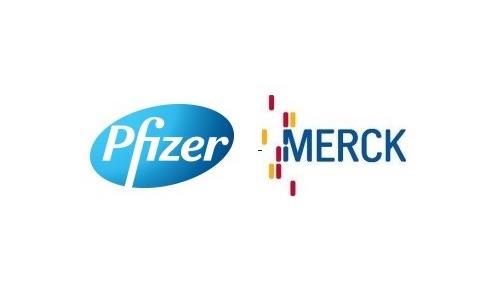
Merck and Pfizer Announce Investigational Immunotherapy Avelumab Receives FDA Fast Track Designation for Metastatic Merkel Cell Carcinoma
Merck and Pfizer today announced that the US Food and Drug Administration (FDA) has granted avelumab*, an investigational fully human anti-PD-L1 IgG1 monoclonal antibody, Fast Track designation for the treatment of metastatic Merkel cell carcinoma (MCC), a rare and aggressive type of skin cancer.1,2 This announcement builds on the recent FDA Orphan Drug designation that was granted for avelumab on September 21, 2015 for the treatment of MCC. The Fast Track designation is designed to facilitate the development, and expedite the review, of drugs to treat serious conditions and address an unmet medical need.
“We are pleased that the FDA continues to acknowledge the current high unmet needs for patients with metastatic Merkel cell carcinoma through these recent regulatory designations for avelumab,” said Dr. Luciano Rossetti, Head of Global Research & Development at Merck’s biopharmaceutical business, Merck Serono. “We look forward to working closely with the FDA on an expedited review process for avelumab, and we hope to be able to provide a potential new treatment option for patients with this difficult-to-treat cancer in the future.”
“We look forward to working with our partners at Merck on the development of avelumab in patients with relapsed and refractory Merkel cell carcinoma,” said Dr. Mace Rothenberg, Senior Vice President of Clinical Development and Medical Affairs and Chief Medical Officer for Pfizer Oncology. “Fast Track designation will enable us to coordinate these efforts more closely with the FDA.”
The designation relates to the clinical development program for avelumab in metastatic MCC, which includes the Phase II study, JAVELIN Merkel 200, to assess the safety and efficacy of avelumab in patients with metastatic MCC who have progressed after at least one prior chemotherapy regimen. In this study, the primary endpoint is objective response rate, and secondary endpoints include duration of response, progression-free survival, overall survival and safety. The study, which exceeded its expected enrollment of 84 patients with 88 patients enrolled, is being conducted in sites across Asia Pacific, Australia, Europe and North America.
The clinical development program for avelumab now includes more than 1,000 patients who have been treated across more than 15 tumor types, including breast cancer, gastric/gastroesophageal cancer, head and neck cancer, MCC, mesothelioma, melanoma, non-small cell lung cancer, ovarian cancer, renal cell carcinoma and urothelial (e.g. bladder) cancer.
About the FDA Designations
FDA’s granting of the Fast Track and Orphan Drug designations for metastatic MCC does not alter the standard regulatory requirement to establish the safety and effectiveness of a drug through adequate and well-controlled studies to support approval.
Fast Track is designed to facilitate the development, and expedite the review, of drugs to treat serious conditions and address an unmet medical need. Once a drug receives Fast Track designation, early and frequent communication between the FDA and a drug company is encouraged throughout the entire drug development and review process. The frequency of communication can help resolve questions and issues quickly, often leading to earlier drug approval and patient access to important new therapies. Fast Track designated products are eligible for accelerated approval and priority review, if relevant criteria are met, and rolling FDA review of marketing applications.
FDA Orphan Drug designation is granted to drugs intended to treat rare diseases or disorders that affect fewer than 200,000 people in the US, or those that affect more than 200,000 people, but are unlikely to recover the costs of developing and marketing the drug.
*Avelumab is the proposed International Nonproprietary Name for the anti-PD–L1 monoclonal antibody (MSB0010718C). Avelumab is under clinical investigation and has not been proven to be safe and effective. There is no guarantee that avelumab will be approved in the sought-after indication by any health authority worldwide.


























